Handwriting practice Tracing Numbers Worksheets for Ages 6-8
7 filtered results
-
From - To
Enhance your child's handwriting skills with our "Handwriting Practice Tracing Numbers Worksheets" designed specifically for ages 6-8! These engaging worksheets offer fun and interactive exercises, helping young learners master number formation through tracing. Each worksheet focuses on different numbers, providing ample practice to ensure mastery and confidence. As children trace, they improve fine motor skills and hand-eye coordination while reinforcing their understanding of numbers. Perfect for both at-home learning and classroom activities, our tracing worksheets make practicing handwriting enjoyable. Boost your child's educational journey and support their math skills with these essential resources. Start tracing today for a smooth writing future!
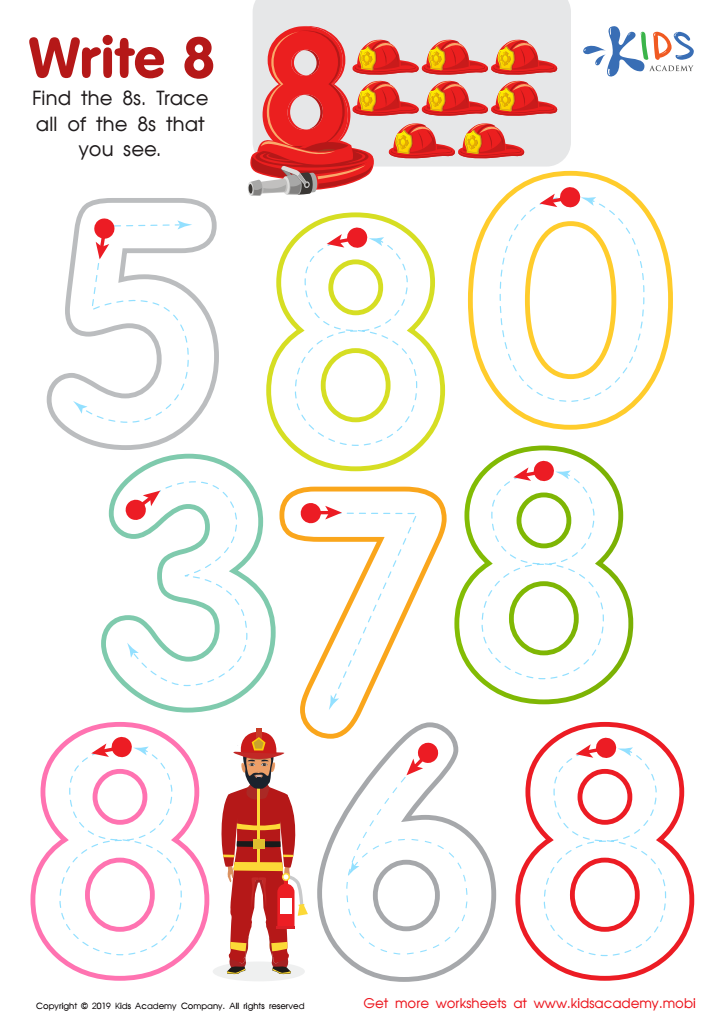

Write 8 Worksheet
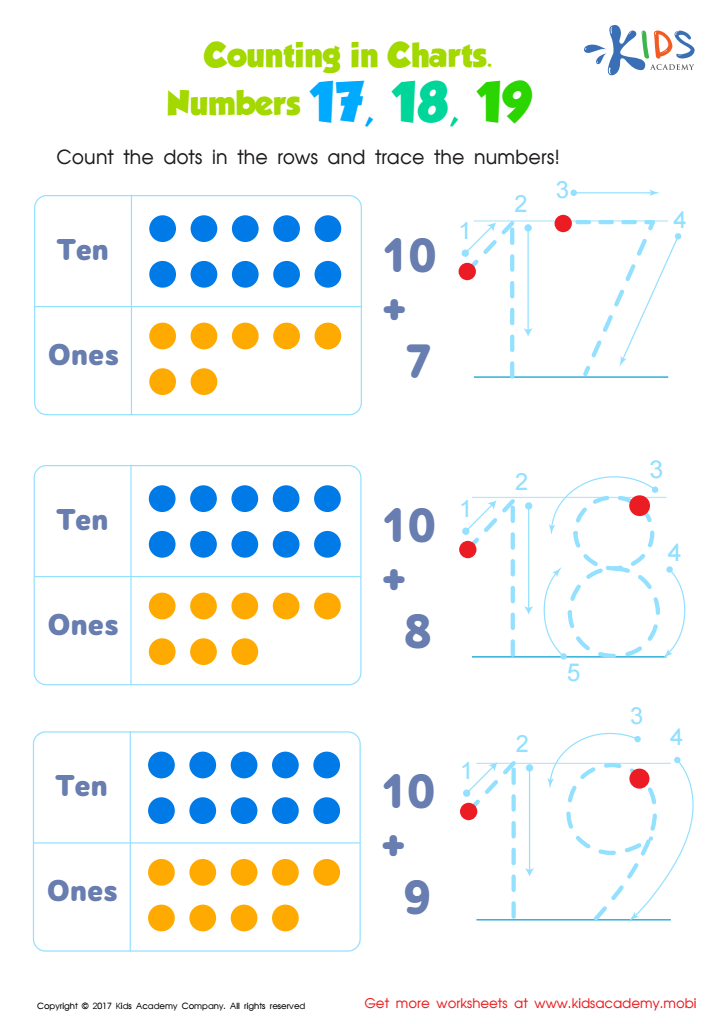

Kindergarten Number Tracing: Counting in Charts Worksheet
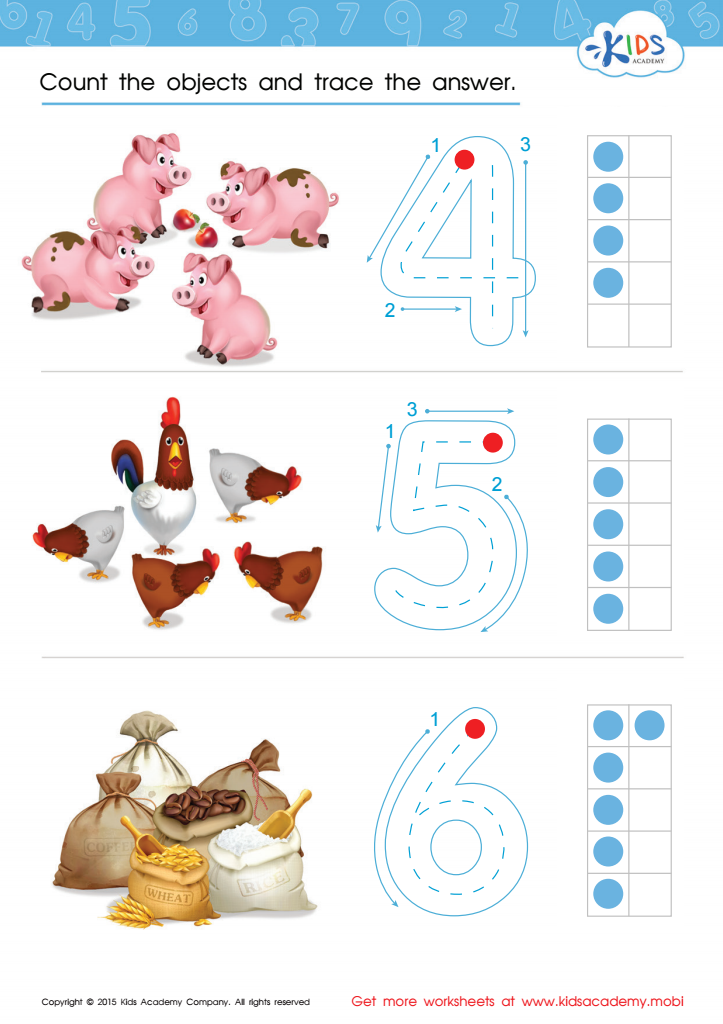

Count and Trace 4 – 6 Worksheet
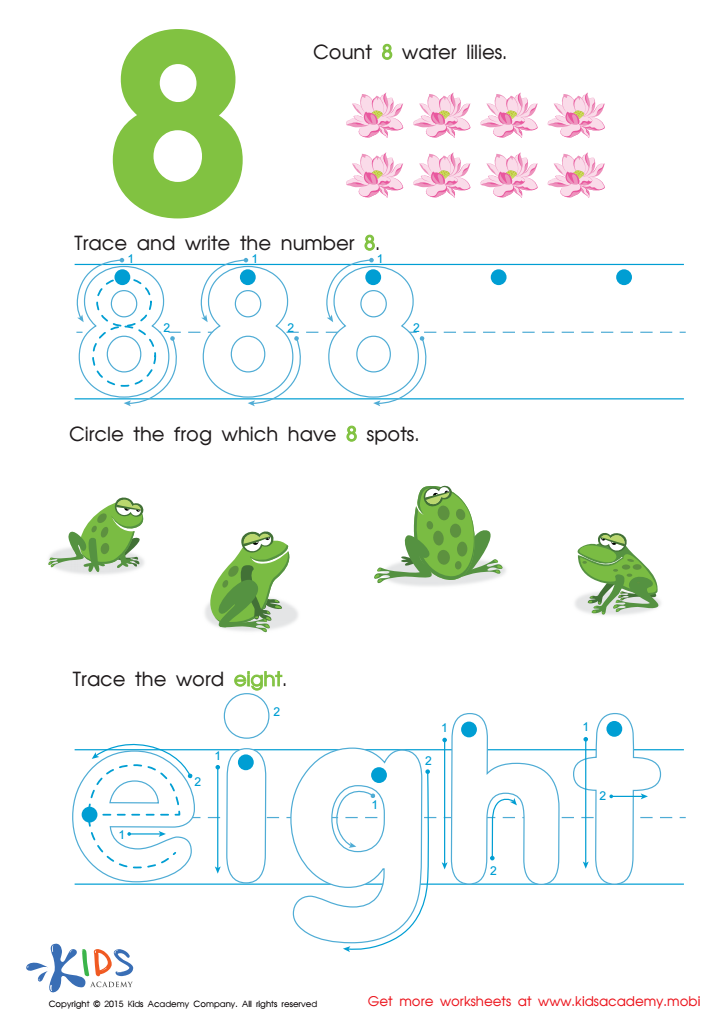

Learn Number 8 Easily Worksheet
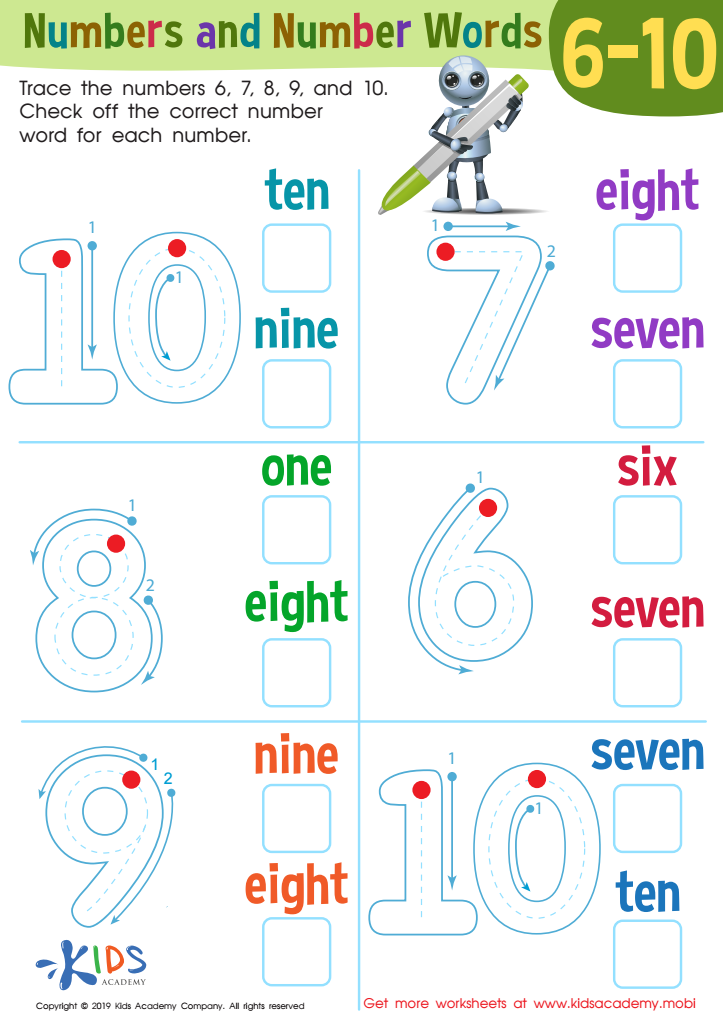

Numbers and Number Words 6–1 Worksheet
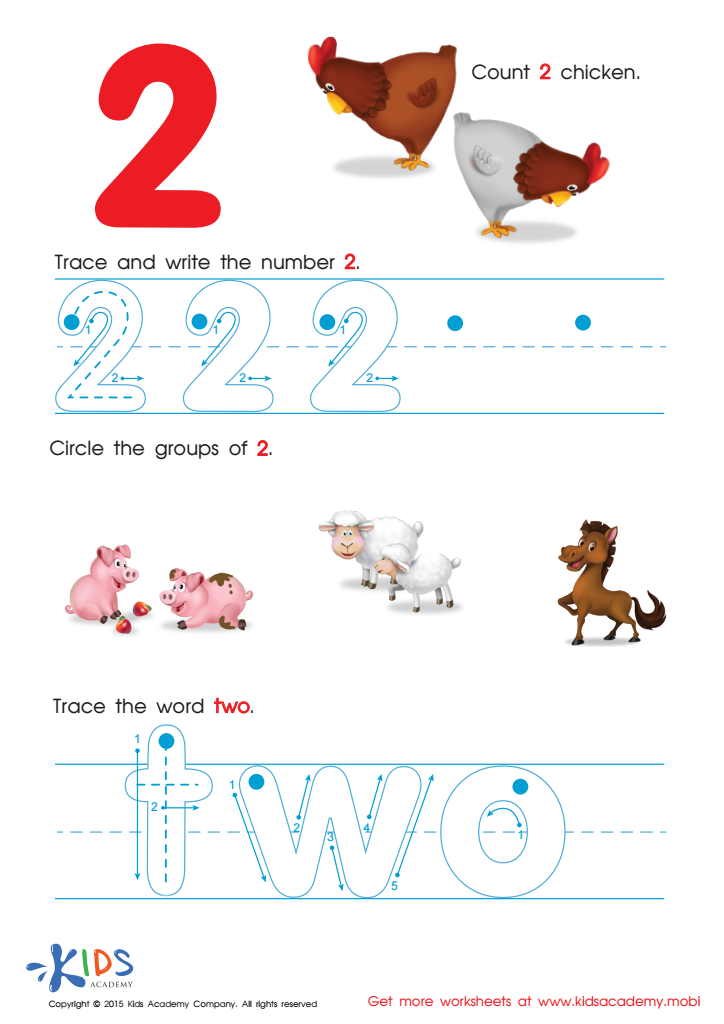

Learn to Write the Number 2 Worksheet
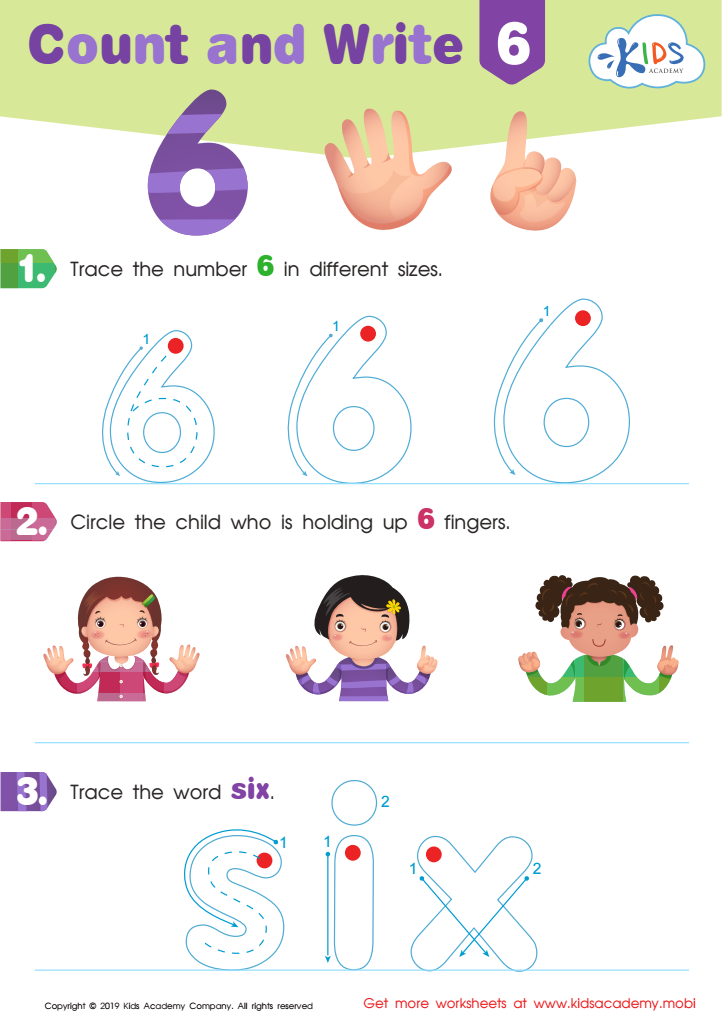

Count and Write 6 Worksheet
Handwriting practice, particularly tracing numbers, is essential for children aged 6-8 for several reasons. During this developmental stage, children are honing fine motor skills, which are crucial for various daily tasks, including writing. Tracing numbers aids in refining hand-eye coordination and grip strength, allowing for greater control of writing instruments.
Moreover, numeracy and literacy are closely intertwined in early education. By tracing numbers, children also reinforce their understanding of mathematical concepts and sequences. This practice not only helps them recognize numbers but also improves their ability to write them correctly, fostering confidence in their mathematical skills.
Additionally, regular handwriting practice promotes focus and attention to detail, skills valuable beyond academics. Tracing provides a structured way for children to engage with numbers, allowing them to explore patterns and develop cognitive skills. It also offers an opportunity for parents and teachers to see progress and encourage a positive attitude toward learning.
Finally, incorporating creative elements into tracing– such as using colored pencils or engaging themes– makes the experience enjoyable. When children see writing as a fun, interactive process, they are more likely to develop a lifelong appreciation for learning and expression, setting a strong foundation for their future educational journeys.
 Assign to My Students
Assign to My Students






















